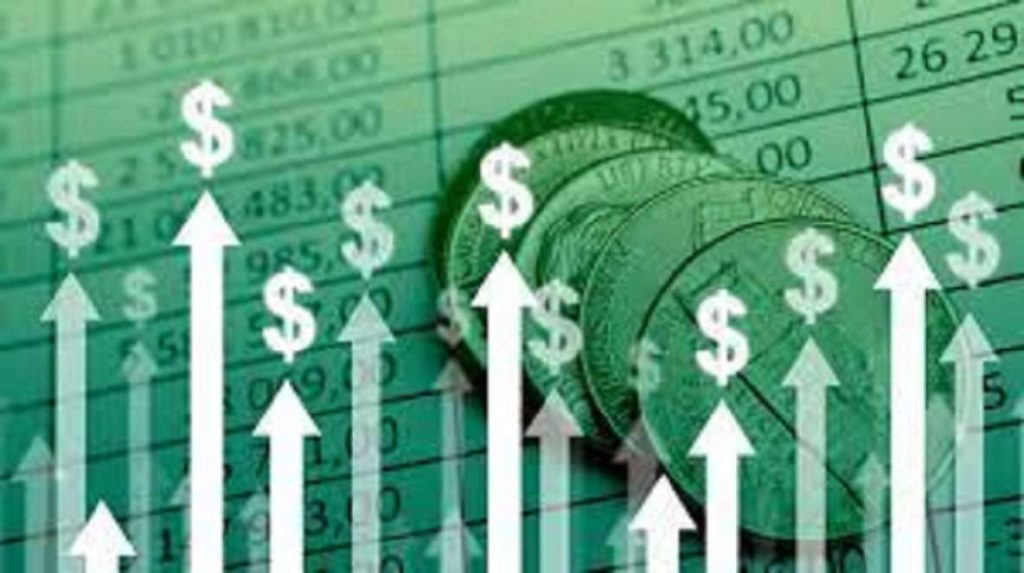(NA)
Inflation and high prices have emerged as major issues in the 2024 presidential election. Public anger over these issues—and the general state of the economy—may be the single biggest obstacle to President Biden’s reelection chances. A recent Harris poll commissioned by the Guardian finds that public attitudes on inflation and the state of the economy are heavily influenced by ignorance. While there really was a big increase in inflation in 2021-22, the current state of the economy is much better than most voters believe:
The poll highlighted many misconceptions people have about the economy, including:
55% believe the economy is shrinking, and 56% think the US is experiencing a recession, though the broadest measure of the economy, gross domestic product (GDP), has been growing.
49% believe the S&P 500 stock market index is down for the year, though the index went up about 24% in 2023 and is up more than 12% this year.
49% believe that unemployment is at a 50-year high, though the unemployment rate has been under 4%, a near 50-year low….
The poll underscored people’s complicated emotions around inflation. The vast majority of respondents, 72%, indicated they think inflation is increasing. In reality, the rate of inflation has fallen sharply from its post-Covid peak of 9.1% and has been fluctuating between 3% and 4% a year.
In April, the inflation rate went down from 3.5% to 3.4% – far from inflation’s 40-year peak of 9.1% in June 2022 – triggering a stock market rally that pushed the Dow Jones index to a record high.
The poll also finds that 58% of respondents blame Biden for the state of the economy. This is part of a broader pattern where people credit and blame incumbent presidents for short-term economic trends, even though the latter generally have only modest influence over them.
The Guardian, of course, is a left-wing media outlet, and that viewpoint may well have influenced them to commission this survey. But Harris is a generally respected polling firm, and I don’t see major flaws in the wording of the relevant questions in this survey.
Biden probably does deserve some blame for the massive outbreak of inflation in the immediate post-pandemic period. He supported massive spending increases that helped create a situation where there was a vast increase in the amount of money in the economy that was not matched by a comparable increase in production. But most of that spending was also supported by the Republicans, including President Donald Trump, when he was still in office in 2020-21. Biden also deserves blame for continuing many of Trump’s tariffs (which caused significant price increases and reductions in consumer welfare) and adding some of his own. Nonetheless, few of the policies that helped cause inflation are ones that Biden supports, but Trump would have acted differently on. There was also bipartisan support for the Federal Reserve’s massive infusion of money into the economy during Covid.
The evidence in this poll is just the tip of a larger iceberg of public ignorance about inflation, prices, and related issues. For example, a February poll found that 59% of Americans believe corporate greed is a “major cause” of inflation. Economists overwhelmingly reject that view—not because corporations aren’t greedy for profits but because there is no good reason to believe corporations are more greedy during periods of high inflation or that their greed somehow has a bigger impact during such times. Corporate greed is a constant, and therefore cannot explain a variable like inflation or price changes. In this case, public ignorance may be helping Democrats at the margin, as they emphasize curbing corporate greed much more than the GOP does.
Ignorance may also explain why voters angry about inflation and high prices tend to back Trump as a result. In so doing, they ignore the fact that many of his policies would make price increases much worse. For example, Trump’s plan to impose a 10% tariff on all imported goods would massively increase prices on many goods, costing the average American household about $1700 per year. This goes far beyond anything Biden proposes, though his trade record is far from wonderful.
Trump’s plan for massive deportation of undocumented immigrants would also predictably lower production and increase prices in much of the economy, thereby likely stimulating inflation more generally. Contrary to popular perceptions, such deportations also destroy more jobs for native-born workers than they create, thereby making it even harder for many families to make ends meet.
Trump also plans to undermine the independence of the Federal Reserve. If he succeeds, that is likely to worsen inflation, as well. Historically, more independent central banks do a better job of constraining inflation than those more subject to political pressure.
Biden’s record on inflation and prices is far from ideal. But Trump’s policies are likely to be much worse. If voters focused on these issues understood that, they would be trending in a different direction.
Public ignorance about inflation and the economy is part of a broader problem of widespread political ignorance that degrades the quality of public policy. While in this instance, the ignorance is benefiting Trump and the GOP, the problem is not limited to any one side of the political spectrum and doesn’t always benefit the political right rather than the left. There are many examples of ignorance and misconceptions that are more disproportionately common among Democrats and left-wingers.
The fundamental problem is not that voters are stupid, but that the low chance that any one vote will decisively effect electoral outcomes gives most voters strong incentives to be “rationally ignorant” about political issues and to do a poor job of evaluating the information they do learn. That problem affects voters on all parts of the political spectrum.
It’s also worth noting that public ignorance doesn’t just influence voter decisions between the available options, as with the choice between Biden and Trump this year. It also affect the quality of those options themselves. If parties faced a more knowledgeable and discerning electorate, they would have incentives to nominate better candidates, choose better policies, or some combination of both.
Instead, parties and candidates are incentivized to exploit public ignorance for electoral advantage. Trump does this on a truly massive scale, and it played a key role in his rise to power in 2016. But more conventional politicians, including left-wing ones like Barack Obama, engage in such chicanery, as well.
There is no quick and simple solution to the problem of ignorance. In my view, the best approach to addressing widespread voter ignorance and bias is to empower people to make more decisions by “voting with their feet” and fewer at the ballot box. Foot voters have better incentives to seek out information and evaluate it objectively than ballot box voters do. I go over the strengths and weaknesses other possible solutions in my book Democracy and Political Ignorance and in this more recent article.
Sadly, we are unlikely to make significant progress in curbing political ignorance in time for the 2024 election. But perhaps we can at least increase awareness of the problem, which might make it easier to address in the future.
The post Inflation, the Economy, and Political Ignorance appeared first on Reason.com.







